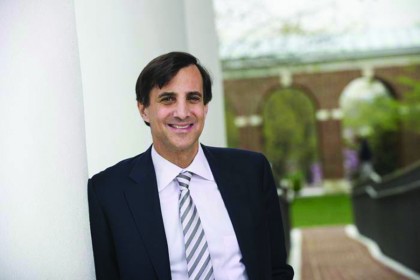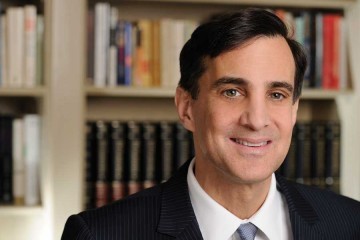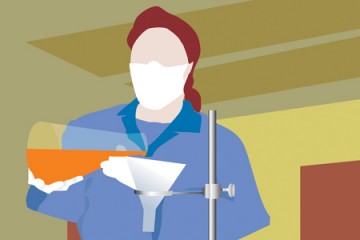Johns Hopkins University President Ronald J. Daniels, a vocal proponent of increasing support for young researchers, has been tapped by the National Academies of Sciences, Engineering, and Medicine to chair a 16-person committee that will evaluate opportunities and barriers for new and early stage investigators in the biomedical and behavioral sciences.

The committee's work was commissioned by Congress as part of the Next Generation Research Act.
The group's study will include:
- An evaluation of the legislative, administrative, educational, and cultural barriers faced by young researchers
- An evaluation of the impact of federal budget constraints on young researchers
- Recommendations for the implementation of policies to incentivize, improve entry into, and sustain careers in research for young researchers, including proposed policies for agencies and academic institutions
A report on the committee's findings is expected to be released in 2018.
"Our most promising young minds find it more difficult than ever to ignite their own research," Daniels wrote in a 2014 Wall Street Journal op-ed co-authored by Paul Rothman, dean of the medical faculty at Johns Hopkins.
"If we miss out on investing in the next generation of scientists, we will miss out on their discoveries as well—and the benefits we all reap in improved drugs, technologies and jobs."
Daniels has long cautioned that declining funding for young investigators, coupled with the corresponding brain drain of bright young scientists from academic research, poses grave risks for the future of science.
"Without their own funding, young researchers are prevented from starting their own laboratories, pursuing their own research, and advancing their own careers in academic science," Daniels wrote in a 2015 commentary in the Proceedings of the National Academy of Sciences. "It is not surprising that many of our youngest minds are choosing to leave their positions."
At Johns Hopkins, Daniels has been a fervent supporter of early career scientists. He supported the creation of the Johns Hopkins University's Catalyst Award program, which annually gives awards of up to $75,000 to early career faculty members from across the university. Thirty-four faculty members received Catalyst Awards in 2016.
In October, the university announced the creation of the faculty-led Committee on the Biomedical Scientific Workforce, which will evaluate ways Johns Hopkins can be a leader in advancing the training and careers of its students, staff, and faculty involved in biomedical research, including its early career investigators.
Posted in University News









